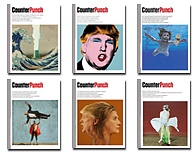The war party is back in power and the odds of normal relations with Russia have dropped to zero.
The appointment of Army Lieutenant General H.R. McMaster to the position of national security adviser indicates that Trump has done an about-face on his most critical foreign policy issue, normalizing relations with Russia. General Michael Flynn– who recently stepped down from the post following allegations of lying to Vice President Mike Pence –was the main proponent of easing tensions with Moscow which is a position that had been enthusiastically embraced by President Donald Trump. But McMaster does not support normalizing relations with Russia, in fact, McMaster sees Russia as a “hostile revisionist power” that “annex(es) territory, intimidates our allies, develops nuclear weapons, and uses proxies under the cover of modernized conventional militaries.” So, what’s going on? Why has Trump put a Moscow-hating hawk like McMaster in a position where he’ll be able to intensify the pressure on Russia, increase the provocations and, very likely, trigger a conflagration between the two nuclear-armed superpowers?
The appointment of McMaster is an attempt by Trump to placate his enemies in the Intel agencies and foreign policy establishment. Trump is signaling to his adversaries that he will cooperate in carrying out their strategic agenda provided they allow him to finish his term. Trump doesn’t want to end up like Flynn nor does he want to do battle with the all-powerful deep state operatives who can launch one demeaning propaganda blitz after the other followed by years of excruciating investigations leading inevitably to a lengthy and humiliating impeachment that leaves Trump a broken, discredited shambles. That’s not how Trump wants to end his career in politics. He wants to end it on a high note, riding a wave of burgeoning affection and love.
That’s why he picked McMaster. The neocons love him, the liberal interventionists love him, the media loves him and the entire political establishment loves him. Everyone loves him. He’s the “warrior-scholar” who ‘speaks truth to power’ and writes futuristic books on ‘generation warfare’, ‘information superiority’ and ‘predictive battlespace awareness’ all of which delight his devoted admirers. The downside of McMaster is that he is a hard-boiled militarist with a driving animus towards Russia. Judging by his writing on the topic, I would expect a broader and more lethal conflict to flare up in either Syria or Ukraine as soon as he gets settled in his new job.
Bottom line: The removal of Flynn has convinced Trump that powerful elements within the national security state have him in their crosshairs. As a result, Trump has relinquished control of foreign policy and handed the whole mess over to gladiator McMaster who will coordinate with Sec-Def General James Mattis on a new strategy to deploy US troops to East Syria and West Iraq to establish a permanent military presence in “occupied” Sunnistan. (The area will also be used for natural gas pipeline corridors connecting Qatar to the EU) The strategy in Ukraine will focus primarily on luring Russia into a long and resource-draining war that will further depress the ailing Russian economy precipitating political instability, social unrest and regime change. That is the hope at least, that Russia’s wars abroad will lead to the ousting of Vladimir Putin.
Here’s a few clips from a presentation McMaster gave at the Center for Strategic and International Studies on May 4, 2016. They help to clarify the man’s ominous world view:
“…what I’d really like to talk to you about is (the) period we’re in right now, a period of increasing risks…risks to our nation, to our allies, and really all of humanity……….
globally – the situation in connection with U.S. vital interests and security – .. is changing really in a direction that’s going to raise additional challenges to the U.S. and U.S. national security…. what we’re seeing is a shift in geopolitics in a way that imposes great dangers and has elevated the risk of a major international military crisis to the highest level in the last 70 years. A number of scholars are writing about this – Jakub Grygiel and Wess Mitchell in particular in their great recent book “Unquiet Frontier,” where they describe revisionist powers, Russia and China in particular on the Eurasian landmass, that are surrounded by weak states which are now becoming battlegrounds, areas of competition at the far reaches of American power.” (“Harbingers of Future War: Implications for the Army with Lieutenant General H.R. McMaster”, The Center for Strategic and International Studies)
We have discussed the “pivot to Asia” ad nauseam in this column. McMaster’s comments help to underscore the fact that the struggle to control the “Eurasian landmass”, the center of economic growth for the next century, is at the heart of the US imperial crusade which is now entering a new and more dangerous phase.
McMaster: “I also think Margaret MacMillan’s great essay written in 2014 making the analogy between 2014 and 1914, and really making the point that geopolitics is back; maybe our – what we might call our holiday from history in the post-Cold War period is over.”
So in McMaster’s mind, another global conflagration on a par with World War 1 is now in the making. Unlike most people, he sees this as a challenge rather than an apocalyptic event that should be avoided at all cost.
McMaster: “I think what might have punctuated the end of the post-Cold War period is Russia’s invasion of Ukraine and annexation of Crimea. Now, this was – this was not really a new development in terms of Russian aggression. I think you can go back to the denial-of-service attacks on the Baltic states in 2007, certainly the invasion of Georgia in 2008.”
McMaster is extremely well read and follows the news closely. He knows that Georgia attacked South Ossetia and that Putin –who was at the Olympics at the time– merely responded. Why is McMaster deliberately misleading his audience about the details? And why doesn’t he explain how the elected government of Ukraine was toppled in a CIA-State Department coup? Those facts are readily available to anyone who has seriously researched the incident.
It seems obvious that McMaster is twisting the truth to make his case against Russia.
McMaster:
“…even though it may have been apparent at least since 2008 that Russia was changing its geostrategic behavior … what we’re seeing now is we’ve awakened to, obviously, this threat from Russia, who is waging limited war for limited objectives – annexing Crimea, invading Ukraine – at zero cost, consolidating gains over that territory, and portraying the reaction by us and allies and partners as escalatory.”
The “threat from Russia”? In other words, NATO is not responsible for its relentless push eastward expanding its grip on all the former Soviet satellites in east Europe, deploying its tanks, heavy artillery, troops and missile systems right onto Russia’s doorstep. No. Instead, Russia should be blamed for its fictitious invasion of Crimea.
McMaster is basing his argument on fake facts and a convoluted interpretation of events that doesn’t square with reality. Russia is the victim of US-NATO aggression not the perpetrator.
McMaster then offers a remedy for so called ‘Russian aggression’: “…what is required to deter a strong nation that is waging limited war for limited objectives on battlegrounds involving weaker states … is forward deterrence, to be able to ratchet up the cost at the frontier, and to take an approach to deterrence that is consistent with deterrence by denial, convincing your enemy that your enemy is unable to accomplish his objectives at a reasonable cost rather than sort of an offshore balancing approach and the threat of punitive action at long distance later, which we know obviously from – recent experience confirms that that is inadequate.”
“Forward deterrence”? This needs to be clarified.
What McMaster is saying, is that, instead of threatening to retaliate at some time in the future, the US should use ‘deterrence by denial’, that is, make it as hard and as costly as possible for Russia to achieve its strategic objectives. By defeating ISIS in Eastern Syria and establishing permanent US military bases, McMaster intends to prevent Russia from restoring Syria’s sovereign borders which is one of the primary goals of the mission. The “safe zones” that Trump has talked about recently, fit perfectly with this same strategy as they undermine Moscow’s efforts to reunify the state and bring the conflict to an end.
This appears to be the plan that McMaster will pursue as national security adviser. Expect US ground troops to be deployed to Syria as soon as the details are worked out.
More from McMaster:
“… what Russia is employing…is a sophisticated strategy…that combines conventional forces as cover for unconventional action, but a much more sophisticated campaign involving the use of criminality and organized crime, and really operating effectively on this battleground of perception and information, and in particular part of a broader effort to sow doubt and conspiracy theories across our alliance. And this effort, I believe, is aimed really not at defensive objectives, but at offensive objectives – to collapse the post-World War II, certainly the post-Cold War, security, economic, and political order in Europe, and replace that order with something that is more sympathetic to Russian interests.”
The Russian strategy employs “criminality and organized crime” to effect “perception and information”?
This is just more demonization of Russia intended to make the case for war. Putin does not want a war with the US nor does he want to “collapse the post-World War II order… and replace that order with something that is more sympathetic to Russian interests.”
Putin is a firm believer in capitalism and still participates in the G-20 and WTO. What Putin objects to is the US using its extraordinary power to topple regimes it doesn’t like spreading death and instability across the planet. That’s what he opposes, the persistent meddling that undermines global security. Is that so unreasonable?
McMaster:
“So what do all these conflicts have in common is they’re about the control of territory, people and resources. ….what we need is that synergy between the joint force, where our forces have the capability and the capacity to deter conflict and, if that fails, to resolve conflict in our interest – to protect our security and our vital interests. And that may entail imposing outcomes without the cooperation of the enemy, and that has significant implications for the Army in particular.”
In other words, we are going to continue to fight for oil and markets (our “vital interests”), we’re going to go it alone if necessary, and if somebody tries to stop us, we’re going to annihilate them.
Isn’t that what he’s saying?
You know it is. There’s not going to be normal relations between Russia and the US on McMaster’s watch. The man believes we are in a life or death struggle with an evil enemy that wants to do us harm. That’s not the basis for building peaceful relations. It’s a justification for war.











